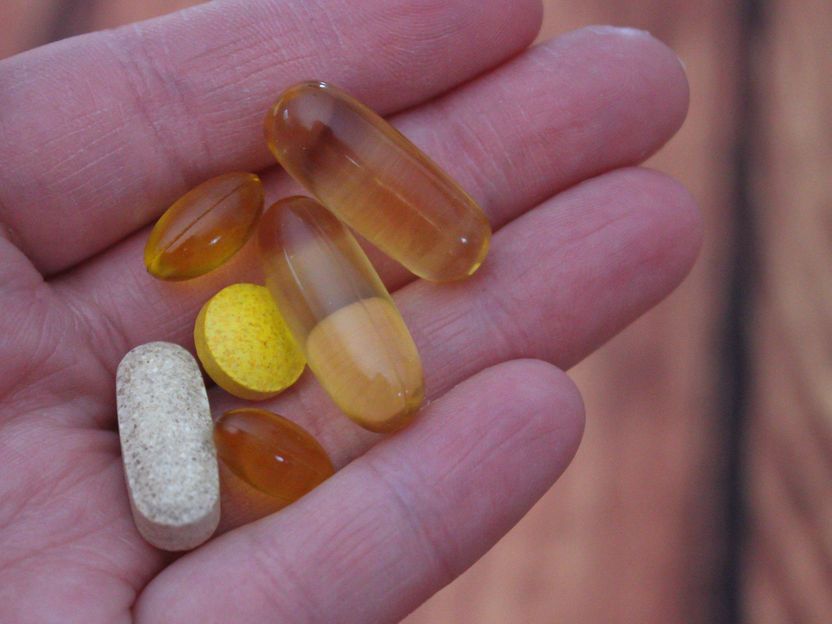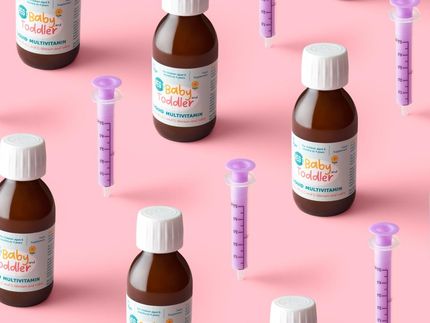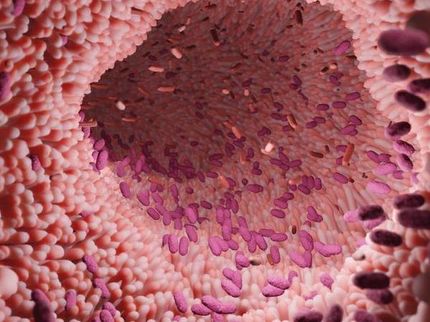Nutrients such as zinc and a healthy gut microbiota could be part of the puzzle in tackling COVID-19
Stress management, reduced stigma around obesity, healthy intakes of selenium, vitamin D and zinc, and promoting a healthy gut microbiota have all been highlighted as potential contributors to the fight against the effects of COVID-19 by expert scientists presenting at the British Nutrition Foundation (BNF)’s virtual conference: Nutrition and COVID-19.

Photo by Kayla Maurais on Unsplash
Throughout the conference, which took place on Tuesday 24 November, a series of eminent speakers working in the field of nutrition science discussed new and emerging research on the role nutrition plays in both protecting against COVID-19 infection and reducing the severity of associated health complications.
The mental health impact of obesity and COVID-19 risk
In a talk titled ‘Obesity as a risk factor for COVID-19’ Prof Jason Halford, University of Leeds, presented evidence to show that people living with obesity have an increased risk of contracting the virus, hospitalisation, ICU admission and dying from COVID-19.
Bringing to life the perspectives of people living with obesity, Halford shared data from a survey conducted by the European Coalition for People Living with Obesity, which reveals that 73 percent of those surveyed are concerned about COVID-19 due to their weight. However, 43 percent have also been comfort or binge eating since the beginning of the pandemic; 60 percent are experiencing low levels of motivation; and 60 percent are struggling daily with their mental health.
Halford emphasised the negative impact that unusual life events – such as quarantine and being under lockdown at home – can have on weight gain and highlighted that many weight management services have been de-prioritised due to the pandemic. As such, Halford stressed that stigma around obesity, particularly on social media and in the press, is unhelpful in improving public health and, instead, strategies for supporting good mental health are needed to help the weight loss efforts of those living with obesity.
Nutrients and immunity
In a talk titled ‘Nutrition, immune function and COVID-19’, Prof Philip Calder, University of Southampton, explained that a well-functioning immune system is key to providing robust defence against infections such as COVID-19. Amongst the many nutrients that are needed for immunity, he highlighted vitamin D, zinc and selenium as being particularly important for anti-viral immunity.
Calder emphasised the various roles zinc plays in the immune system, particularly its specific function in preventing multiplication of single-strand RNA viruses, like the Coronavirus, by inhibiting the enzymes they need to spread. He explained that diet can provide sufficient zinc without the need for supplements; meat, poultry, cheese, shellfish, nuts, seeds and wholegrains are all sources of zinc.
Calder also highlighted that deficiency of selenium, a nutrient found in poultry, fish, eggs, nuts, seeds and organ meats such as liver or kidney, can: impair immune responses; increase susceptibility to viral infection; permit viruses to mutate; and allow weak viruses to become stronger. He shared previous research that suggests selenium supplementation in humans can help prevent viral mutation, which he said was a very interesting observation when it comes to the mutations of the Coronavirus. Calder also shared findings from a paper released by German researchers which looks at the relationship between selenium status and COVID-19 mortality risk, and suggests that low selenium status could be linked to more severe COVID-19, however it should be noted that this was a small study and more research is needed to confirm this association.
Calder presented data suggesting that low levels of vitamin D are associated with increased risk of COVID-19 infection, as well as hospitalisation, although he stressed that this is an association and so does not provide evidence of causation and that there is currently not enough data available to recommend vitamin D for prevention of COVID-19. Prof Susan Lanham-New, of University of Surrey, who reviewed the evidence on vitamin D, concurred but highlighted the importance of vitamin D for bones and muscles in the context of widespread low vitamin D status in the UK. Lanham-New emphasised that all members of the public should take the recommended daily vitamin D supplement of 10 micrograms between October and March as a precaution to ensure good bone and muscle health.
The effect of probiotics and prebiotics on COVID-19 symptoms
The University of Reading’s Prof Glenn Gibson presented the “Emerging evidence for the role of the human gut microbiome in COVID-19 infection outcomes” and raised interesting points around the potential role of probiotics and prebiotics in supporting the gut microbiome to fight COVID-19. He highlighted that the gut microbiome is a harbouring site for COVID-19 and clinical outcomes can be governed by the type of gut microbiome the patient has. For example, if the numbers of ‘good bacteria’ in the gut are low it might be more difficult for that individual to fight off the virus.
Gibson shared promising results from a recent Italian study into the effect of probiotics on the recovery of patients with COVID-19. The study involved two groups of people – the first (control) group was given hydroxychloroquine, antibiotics, and tocilizumab, alone or in combination and the second was given the same treatment but with a specific formulation of probiotics added. Within 72 hours, nearly all patients treated with probiotics showed remission of diarrhoea and other symptoms, compared to less than half in the control group, and there was also reduced admission to ICU and fewer deaths. More research is needed to confirm these findings.
Sara Stanner, Science Director, BNF, comments: “Scientific papers on emerging aspects of nutrition and COVID-19 continue to be published and one thing we can be certain of is that nutrition and maintaining a healthy body weight have important roles in keeping us healthy and, in turn, help us to protect against COVID-19 and the severity of associated illness. Maintaining a healthy, balanced diet, including foods from all the main food groups, is the best way to help ensure you get all of the nutrients you need for a healthy immune system. However, everyone should consider taking a vitamin D supplement especially during the winter months and also during the summer months if they are spending more time indoors than usual.
“This year we have all faced a plethora of new challenges, and mental health issues are often the silent symptom of this pandemic. It’s therefore important for us all to recognise that we are living through an extremely stressful time, not to be too hard on ourselves, to look for support in finding ways to manage stress and to eat as healthily as we can.”





























































